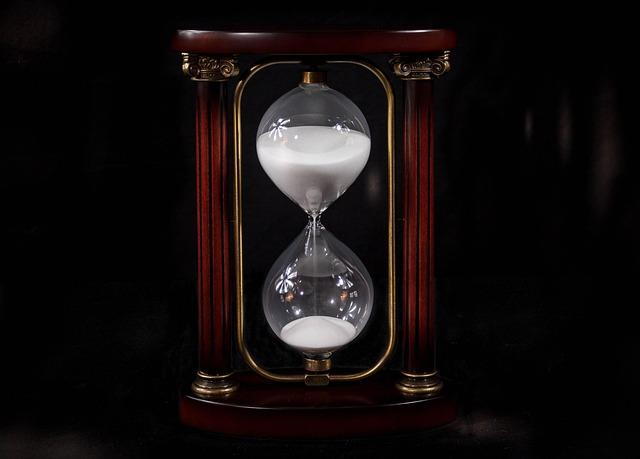Time, Change and Trauma

Jim Croce, Time in a Bottle.
"If I could save time in a bottle
The first thing that I'd like to do
Is to save every day till eternity passes away
Just to spend them with you
If I could make days last forever
If words could make wishes come true
I'd save every day like a treasure and then
Again, I would spend them with you
But there never seems to be enough time
To do the things you want to do once you find them
I've looked around enough to know
That you're the one I want to go through time with
If I had a box just for wishes
And dreams that had never come true
The box would be empty, except for the memory of how
They were answered by you."
Ernest Becker wrote a brilliant book, which he was well aware of many years before his death, titled "The Denial of Death." We live our busy lives pretending that each of us will not be touched by death. We believe other people die, especially when they are aged.
Alvin Toffller wrote another brilliant book called Future Shock. The book discussed how transforming technology created a sense of shock, trauma, and disorientation.
The song and these books all delve into the fact that life is ever-changing. For those adults who are older, the past lives we lived from childhood are unrecognizable from the world as it exists today.
The pace of change in our nation and the world has been remarkable. In just a few decades, technology and social advancements have transformed the way we live, communicate, and interact with one another. For the younger generation, it's challenging to truly grasp the profound differences between today's world and the world of their grandparents and great-grandparents.
Fifty years ago, our lives were devoid of the rapidly advancing technologies that have become second nature to us today. The personal computer was still in its infancy, and the internet was a mere concept. People communicated through landlines or wrote letters; if they needed information, they consulted encyclopedias or visited libraries. The notion of a smartphone that fits in your pocket and provides instant access to infinite knowledge would have been unimaginable.
How we consume information and entertain ourselves has also undergone a dramatic transformation. Television was a staple of family time, and families would gather around the small screen for their favorite shows. Today, streaming services, online gaming, and social media platforms dominate our leisure time. The availability of vast content has revolutionized the entertainment industry, giving individuals the power to customize their experience.
Our society's values and attitudes have also shifted significantly over the past half-century. Accepted norms and taboos have developed as we've become more open-minded and progressively inclusive. The younger generation has grown up with greater gender equality, acceptance of diverse sexual orientations, and increased reliance on renewable energy sources. Once radical concepts have become mainstream, reflecting our ever-changing social fabric.
Economically, globalization has played a critical role in shaping our world. Accessibility to goods and services from around the globe has become the norm, making our lives more convenient but also heightening the challenges faced by traditional industries. For example, e-commerce and the gig economy have redefined work and employment patterns.
Despite the rapid pace of change, the younger generation must appreciate how we lived in the past. Recognizing the struggles and accomplishments of previous generations helps us understand the context in which we exist today. It allows us to appreciate the advancements we enjoy and motivates us to strive for further progress.
Preserving and sharing the stories of the past is crucial. Older generations can play a vital role in bridging the gap, sharing their experiences, and passing down their wisdom. Documentaries, historical accounts, and family storytelling can all contribute to a deeper understanding of our heritage.
As we navigate this ever-changing landscape, the younger generation must remain adaptable, open-minded, and curious. By recognizing the differences between their lives and those of previous generations, they can develop a more comprehensive perspective on the world. Appreciating the past provides a foundation for critical thinking, problem-solving, and shaping a future that respects the lessons of history.
Political upheavals in the U.S. and globally often reflect and amplify these rapid changes. The rise of polarized politics, shifts in global power dynamics, and the unpredictability of international relations contribute to insecurity and fear about the future.
Environmental challenges, such as climate change, natural disasters, and the depletion of natural resources, add another layer of stress. The overwhelming evidence of environmental degradation and its potential consequences creates a looming sense of crisis that can feel both abstract and deeply personal.
Economic changes, driven by globalization, shifts in labor markets, and technological advancements, can lead to financial instability and uncertainty. The rapid pace of these changes can make it difficult for individuals to plan for the future or feel secure in their economic situation.
The cumulative effect of these rapid changes can be traumatic, affecting mental health and well-being. It can lead to feelings of helplessness, anxiety, and depression. This trauma is not just an individual but can also be collective, affecting entire communities and societies.
There is a need for strategies that help individuals and communities adapt to change. This includes providing education and resources to help people navigate new technologies and social norms, fostering open and inclusive dialogues to bridge divides, implementing policies that provide economic security and job training, and taking decisive action on environmental issues.
There is a growing recognition of the importance of mental health support in rapid change. Access to mental health services, community support systems, and public awareness campaigns can help mitigate the effects of this trauma.
It's a complex world. Psychotherapy is highly recommended.

